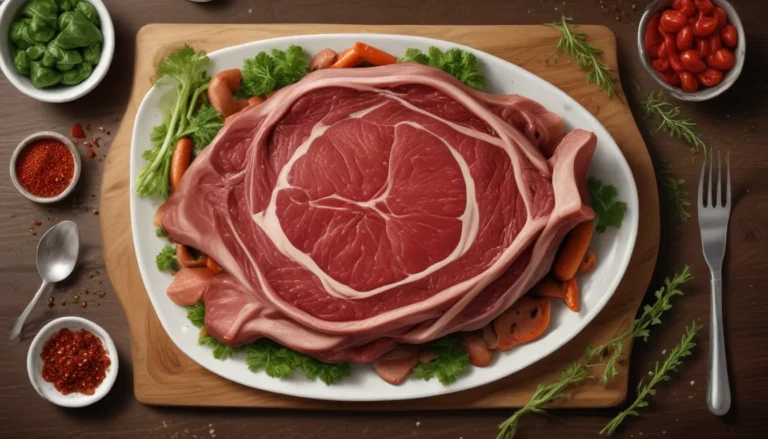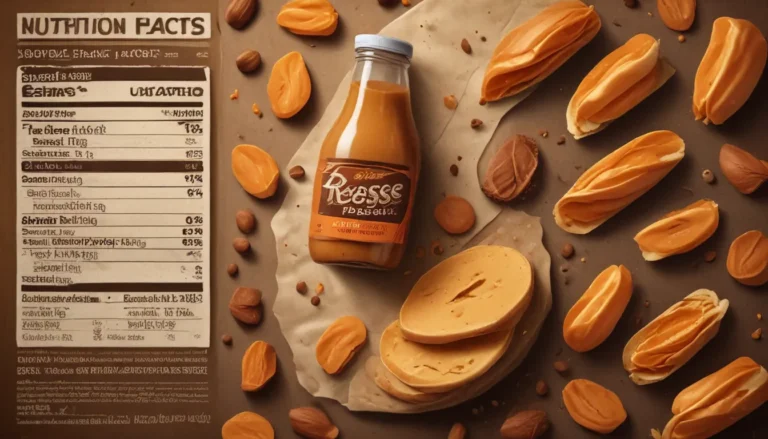The pictures in our articles might not always show exactly what the text is talking about. We use these images to make the article more interesting and eye-catching. They are there to add to the text, but not to replace it or show every detail.
Introduction
Pickled cucumbers, more commonly known as pickles, are a beloved snack and condiment enjoyed worldwide. These tangy, crunchy treats are not only delicious but also pack a surprising nutritional punch. In this comprehensive guide, we'll dive deep into the pickled cucumber nutrition facts, exploring their calorie content, macronutrients, vitamins, minerals, and potential health benefits.
Whether you're a pickle enthusiast or simply curious about incorporating this versatile food into your diet, understanding the nutritional profile of pickled cucumbers can help you make informed dietary choices. From their low-calorie content to their rich array of vitamins and minerals, pickles offer more than just a satisfying crunch.
Key Takeaways
Before we delve into the details, here are the main points to remember about pickled cucumber nutrition facts:
- Pickles are a low-calorie food, with only 10-32 calories per large cucumber
- They are very low in fat and protein but contain some carbohydrates
- Pickled cucumbers are an excellent source of vitamin K
- They contain small amounts of various other vitamins and minerals
- Pickles are typically high in sodium due to the pickling process
- Fermented pickles offer probiotic benefits
- The nutritional content can vary depending on the pickling method and added ingredients
Nutrition Table
Here's a comprehensive breakdown of the pickled cucumber nutrition facts for a large pickled cucumber (approximately 35g):
| Nutrient | Amount | % Daily Value |
|---|---|---|
| Calories | 10-32 | - |
| Fat | 0.14g | 0% |
| Protein | 0.2g | 0% |
| Carbohydrates | 7.4g | 2% |
| Sugar | 6.4g | - |
| Fiber | 0.3g | 1% |
| Sodium | 160mg | 7% |
| Vitamin K | 14-20μg | 14-20% |
| Calcium | 20mg | 2% |
| Vitamin A | 5.6μg | 1% |
| Vitamin C | 0.7mg | 1% |
| Iron | 0.14mg | 1% |
| Potassium | 11.9mg | 0% |
Calorie Content and Macronutrients
One of the most attractive aspects of pickled cucumbers from a nutritional standpoint is their low calorie content. A large pickled cucumber, weighing about 35 grams, contains only 10-32 calories. This makes pickles an excellent choice for those watching their calorie intake or trying to lose weight.
When it comes to macronutrients, pickled cucumber nutrition facts reveal that they are very low in fat and protein. A serving contains merely 0.14g of fat and 0.2g of protein. The primary macronutrient in pickles is carbohydrates, with 7.4g per serving, including 6.4g of sugar. It's important to note that the sugar content can vary significantly depending on the type of pickle, with sweet pickles naturally containing more sugar than dill or sour varieties.
Vitamins and Minerals
Despite their low calorie content, pickled cucumbers offer a variety of essential vitamins and minerals:
Sodium Content
One aspect of pickled cucumber nutrition facts that requires attention is their sodium content. Due to the pickling process, which often involves salt, pickles tend to be high in sodium. A single serving can contain about 160mg of sodium, which is 7% of the daily recommended value.
While sodium is an essential nutrient for maintaining proper fluid balance and nerve function, excessive intake can lead to health issues such as high blood pressure. Therefore, individuals on sodium-restricted diets should consume pickles in moderation.
Antioxidants and Other Benefits
Beyond the basic pickled cucumber nutrition facts, these tangy treats offer additional health benefits:
Variations in Nutritional Content
It's important to note that pickled cucumber nutrition facts can vary depending on the pickling method and added ingredients. For example:
Always check the label or recipe for the most accurate nutritional information.
FAQ
Are pickled cucumbers good for weight loss?
Yes, pickled cucumbers can be beneficial for weight loss due to their low calorie content. However, be mindful of their sodium content.
Do pickles contain probiotics?
Fermented pickles do contain probiotics, which can support digestive health. However, pickles made with vinegar may not have the same probiotic benefits.
Are pickles keto-friendly?
Most pickles are low in carbs and can fit into a ketogenic diet. However, sweet pickles may have higher carb content.
Can diabetics eat pickles?
Pickles can be part of a diabetic diet in moderation. The vinegar in pickles may even help stabilize blood sugar levels.
How do pickled cucumbers compare nutritionally to fresh cucumbers?
Pickled cucumbers have a similar nutrient profile to fresh cucumbers but tend to be higher in sodium and may have added sugar. They also have a longer shelf life.
Conclusion
Understanding pickled cucumber nutrition facts can help you make informed decisions about incorporating this tasty snack into your diet. While pickles are low in calories and fat, and offer some vitamins and minerals, their high sodium content means they should be consumed in moderation.
Pickled cucumbers can be a flavorful addition to a balanced diet, offering a satisfying crunch and potential probiotic benefits. As with any food, the key is moderation and awareness of how they fit into your overall nutritional needs. Whether you're enjoying them straight from the jar or as part of a larger meal, pickles can be a nutritious and delicious part of your culinary repertoire.






